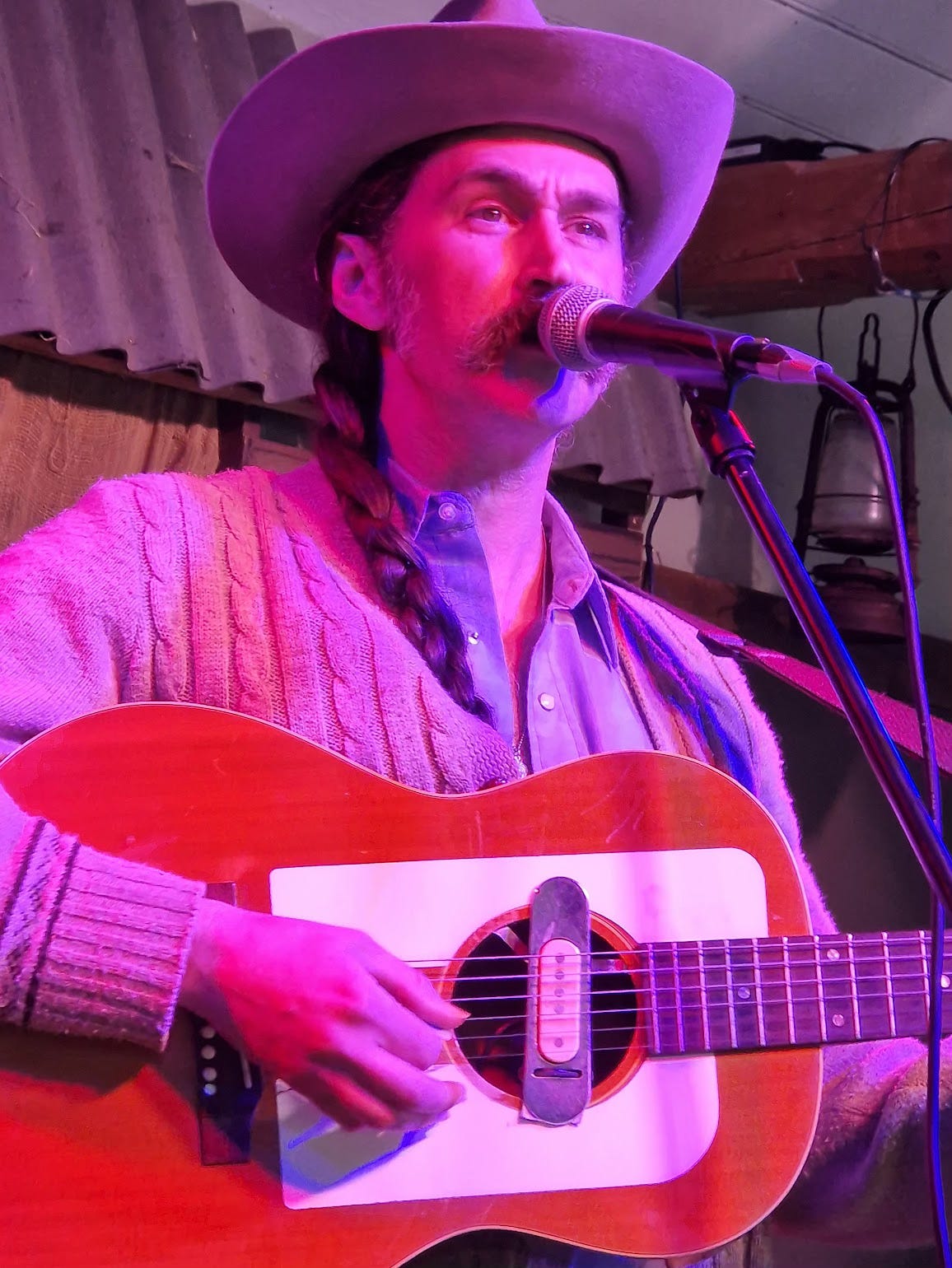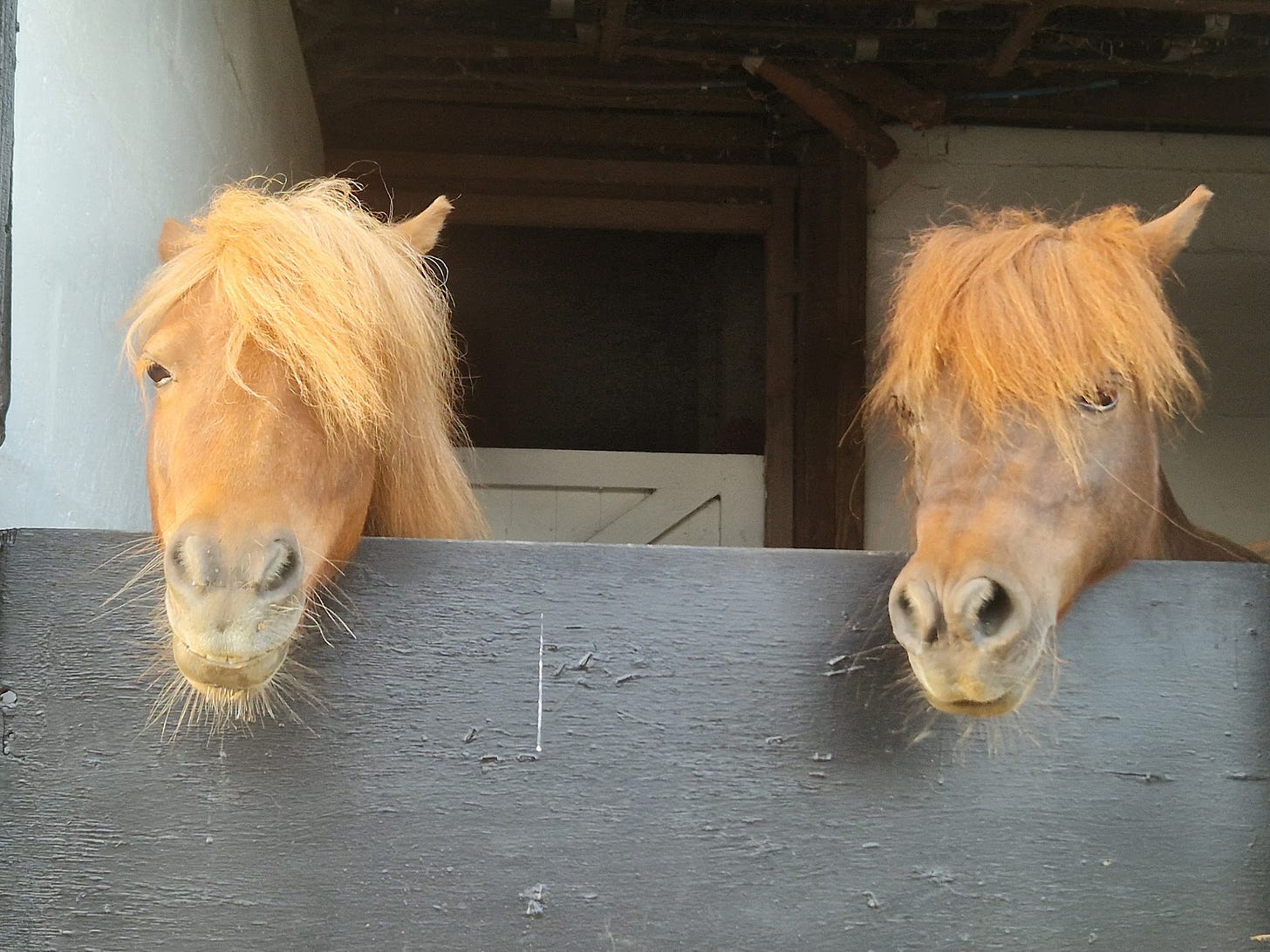MAVERICK FESTIVAL: GO WILD IN THE COUNTRY
AMERICAN ROOTS MUSIC CELEBRATED IN RURAL SUFFOLK: YEEE-HAAAAAA!
Texan zydeco musician Ruben Moreno pumps out the Creole groove.
Last weekend I sat on my sofa and watched a quarter million people gather at Glastonbury Festival to watch superstars of pop, rock, rap and electro play. This weekend I’m attending Maverick Festival, where I’m guessing no more than 2500 people gather to watch rising talents play Americana.
What is Americana? Essentially, it’s an umbrella term for anything considered American “roots” music. Americana, as a genre, appeared to evolve earlier this century in the US, first to replace “alt-country”, an unlovely ‘90s-era tag given to younger country musicians who were making more acoustic, traditional music than the loud, flashy pop-country bros & babes Nashville was now focused on marketing.
By osmosis Americana expanded, embracing in bluegrass and blues, Southern soul and gospel, Cajun and zydeco, pretty much the entire spectrum of vernacular music making in the US South (admittedly, Mexican norteno and mariachi tend to get overlooked, but they are surely, on occasion, welcomed). Candi Staton, the fabulous Alabama-born gospel-soul-disco singer, received a UK Americana award earlier this year (and well deserved it was). Americana is, then, a broad church.
I think I first heard the term “Americana” used when interviewing the Australian singer songwriter Paul Kelly around the turn of the century: Kelly mentioned how he was achieving a larger US audience because he got airplay on “Americana stations.” Then, when interviewing Lucinda Williams a few years later, she said that her career was booming like never before “because of Americana.”
I think Americana’s secret sauce is its appeal to music fans who love folk/roots music but found about country music anathema - considering it reactionary in form and politics. This large demographic embraced Americana, seeing it as somehow a continuation of the “cosmic American music” Gram Parsons had spoken of and associating the likes of Bob Dylan and The Band with the genre.
Maverick Festival is the UK’s foremost Americana festival, its founder Paul Spencer being a musician and documentary director who lived in the US for a long time and, upon returning to England, realised there was a fan base here for the music but no single festival celebrating such.
Spencer launched Maverick in rural Suffolk, a region not known for music festivals - or music of any kind (beyond Benjamin Britten’s Aldeburgh Festival, a prestigious classical music event held at Snape Maltings concert hall amongst the reed beds of the Suffolk coast). Maverick has no concert hall, instead taking place in Easton Farm Park, one of those places where children are brought to experience country life with myriad animals and events. It’s very down home and a perfect setting for the music.
“We also play zydeco in barns in Louisiana and Texas,” said Ruben Moreno, a Houston-based accordionist and singer who headlined the Peacock Stage on Friday night. Maverick’s artists, many of whom are professional but none capable - so far - of headlining several thousand seat theatres or big festivals shine in these intimate surroundings. Not because they lack the talent/ability, but the music industry is a ruthless one and talent is rarely a marker in who achieves fame and fortune.
Ruben Moreno is a fabulous live performer. He pumps his accordion with wild abandon and immediately gets everyone in the barn dancing. Zydeco is Creole R&B and, as this year is the centenary of the birth of Clifton Chenier, the King of Zydeco - I wrote a feature on Chenier for The Guardian this week to mark a tribute album and more (free to read on their website) - Moreno and band are celebrating Clifton at Maverick. We don’t often get zydeco musicians playing in the UK, so if you get the chance to see Moreno don’t miss him, he has swag (ie cool, funky and fun).
Also headlining on Friday was Sara Petite, an outlaw country singer. Sassy? In spades!
I took a break from Moreno’s performance to check Sara Petite, who was headlining in another barn (a minute’s walk away). She’s from Washington and leads a trio of male musicians playing tough, twangy country music. Petite has attitude in spades, is very droll and sings in a voice that’s nasal, even by country standards.
Earlier I’d caught Casey Neill & Chet Lyster, two US guitarists who fit more the singer-songwriter genre than country. While Michele Stoppard & David Ford shared sublime harmonies. Another notable duo were Morton Valence, a London male-female coupling, he on acoustic guitar and vocals, she playing a hammered dulcimer and adding vocals, engaging narrative songs.
The brightest smiles in Suffolk: Michele Stoppard & David Ford.
Outside of Moreno - who I caught for the first time at Maverick 24 - I didn’t know any of the aforementioned artists. It’s one of the joys of festivals in allowing punters to experience rising talents you might never have experienced otherwise. Another example of this is Todd Day Wait. I caught him at Maverick 24 and was impressed by his simplicity and form - accompanying himself on acoustic guitar he sang country music as it likely sounded a century ago.
Day Wait returned on Saturday with his band (drums, bass, lap steel guitar) and they complimented his stark, simple songs. He’s a tall, slim man with a big moustache and a very long braid who wears sensible knitwear and - to my ears - the best of the new traditionalists currently singing honky-tonk country music.
If Todd Day Wait breaks through then you heard about him first here.
Saturday could be called “couples day” as there were a lot of couples singing and playing together: South London’s The Gillies, Nashville’s Adrian & Meredith Band, Ontario’s Two Crows For Comfort, Australia’s The Weeping Willows, West London’s Michele Stoppard & David Ford (again - this time mentioning her famous family band The Magic Numbers) and a Kentish couple singing old English folk songs. Surviving as a couple is hard enough, to be able to do so while working in music is a remarkable achievement.
Living as I do in Peckham, where Nigerians make up the largest community and people from every part of the world rub shoulders, being in Suffolk is a reminder of how English, how white, much of Britain is. And if Maverick has a fault its that the festival can be too white - countless singer songwriters droning on - which is why, for a couple of years, I skipped and went to Love Supreme Festival (Grace Jones, Erykah Badu, Fatback Band, Gary Bartz…I mean legends). Yet amazing as the talent at Love Supreme can be it’s actually a less soulful affair than Maverick, more corporate in approach, all food & drink overpriced, not really that enjoyable. While Maverick is relaxed and reasonable. A nice place to pass a weekend at.
Perhaps sensing Maverick’s booking flaws, last year Paul booked Ruben Moreno and Lizzie No - imagine Tracy Chapman with a wild sense of humour (so good!) - and this year he’s got Ruben and my Brixton homeboy Errol Linton.
I don’t need to introduce Errol to readers of the Yak, y’all surely being aware of my enthusiasm for his Caribbean-spiced blues and the magnificent band he leads. Anyway, I was interested in seeing how they’d go down in a festival full of yokels of a certain age and race who wear cowboy hats. I recall Richard Pryor once saying that, when he heard a redneck shout “yeeee-haaaa”, the hair on his neck started tingling….would native son of Brixton Errol Linton feel the same in rural Suffolk?
The answer is: Errol and his four musicians burnt the barn down. And that’s an understatement - they were magnificent!
Simply the best: Errol Linton sings the blues.
To describe the alchemy a group of individuals can share so to make music that’s fresh, electric, vivid and exciting is near impossible, so I won’t try. I’ll only note how, in front of an audience of strangers, his quintet quickly had them dancing and whooping. And strangers became friends.
Its not simply the skill of the players and Errol’s charisma that inspires audiences, there’s a joy, a life affirming quality, which shines through his blues boogies and reggae skanks (these blending into taut jazz funk jams), everything sounding so natural and human (in the best sense).
I’ve seen great musicians from across the globe - Ruben Moreno is one, while Tod Day Wait is shaping up to be a contender - and from Khaled to The Stooges to Irma Thomas, through Burning Spear and Taraf de Haidouks, they all share a similar quality, that is to make magic happen, to create music that leaves you feeling excited and inspired and happy. Errol and his band of merry men achieved this. And no one yelled “yeeeeeee haaaaa.”
Final notes: Maverick Festival continues on Sunday so I will return to the farm, but it’s a coda - everything wrapping up early afternoon. Which is fine by me - two days of live music is enough. I’ll take a walk, as I always do, around the farm, marvelling at the beautiful horses and small ponies, the miniature goats and peacocks, the child in me delighted to be a country boy, if only for a weekend.
I HOPE YOU ENJOYED THIS POST: IF YOU DID THEN PLEASE CONSIDER BECOMING A PAYING SUBSCRIBER. YOUR SUPPORT IS APPRECIATED.
Down on the farm… Maverick festival: it’s good for your soul.
The Gillies: gothic south London country.
Best haircuts at Maverick modelled by these two foppish ponies.
Well, why not????













Sounds like a great festival Garth. Talking of Americana, I think we shouldn't underestimate the impact of Uncut magazine, which championed the genre in a big way in its alt-country period.
It's actually Michelle 'Stodart' and I don't think David Ford is her romantic partner, last I heard that was Immy Doman from the Green Note.
Your write up made me think of Martha Spencer, a superb American singer, dancer and musicians whose sounds staddles roots and a more mainstream sound. Tying things nearly together, she's playing at the Green Note on the 25th of August.